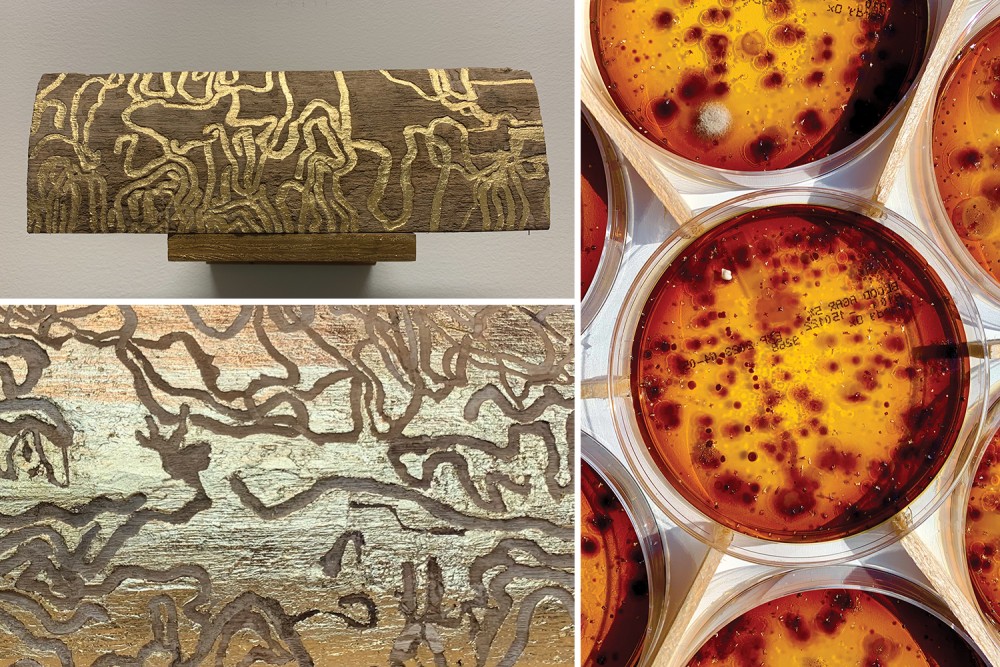Eileen Ryan’s Codex No. 1–3 (left) and Spiritual Microbiomes (right)

Eileen Ryan is a New England–based interdisciplinary artist who explores intersections between art, science, and spirituality, often drawing on her background in microbiology.
Ryan remembers walking in the forest as a child, gathering sticks carved by beetles and wondering what secret messages they might contain. “As I grew older,” she writes in an artist’s statement, “I couldn’t shake the feeling that the woods had something to say.” In her Codex series, Ryan has undertaken a multiyear project exploring bark beetle “galleries,” as they are commonly, and tellingly, called. In this interspecies collaboration, Ryan gilds the galleries by hand, much like a medieval manuscript illuminator reverently embellishing a passage of scripture.
This wager on meaning is not merely metaphorical. Ryan also feeds these beetle graphics into language recognition software, seeking out poetic phrases encoded in the curious calligraphy. Whether she believes such phrases to be intentional or not is almost beside the point: she deliberately leaves the door open to such mystical possibilities, positing a world in which secret scriptures could be carved right beneath our eyes.
Ryan’s respect for the creative capacity and spiritual power latent in other species is also evident in Spiritual Microbiomes. In these works of what she calls “speculative microbiology,” Ryan explores the complex community of microorganisms that live in or on humans and are swapped among us in the places we congregate. These include sacred sites, where people flock to pay homage by touching holy objects and substances and thus entering into communion—knowingly or not—with the microbiome of their coreligionists.
In one recent artistic experiment, Ryan cultures samples of holy water from the Vatican, disclosing its superabundance of microbiological activity. Her work prompts us to recognize the sacrality of impurity, the spiritual value born of enmeshed, shared experience. As chemist Primo Levi once wrote, “In order for the wheel to turn, for life to be lived, impurities are needed.” In religion as much as art.




